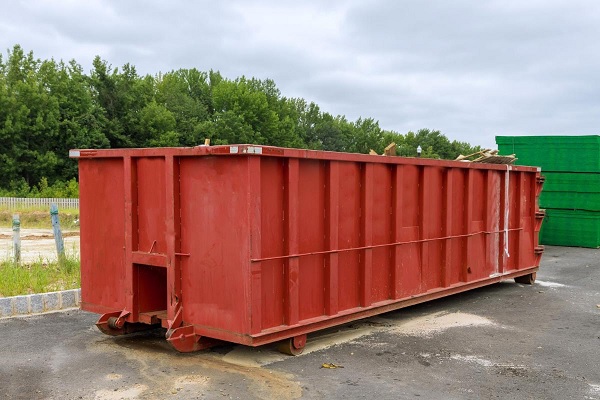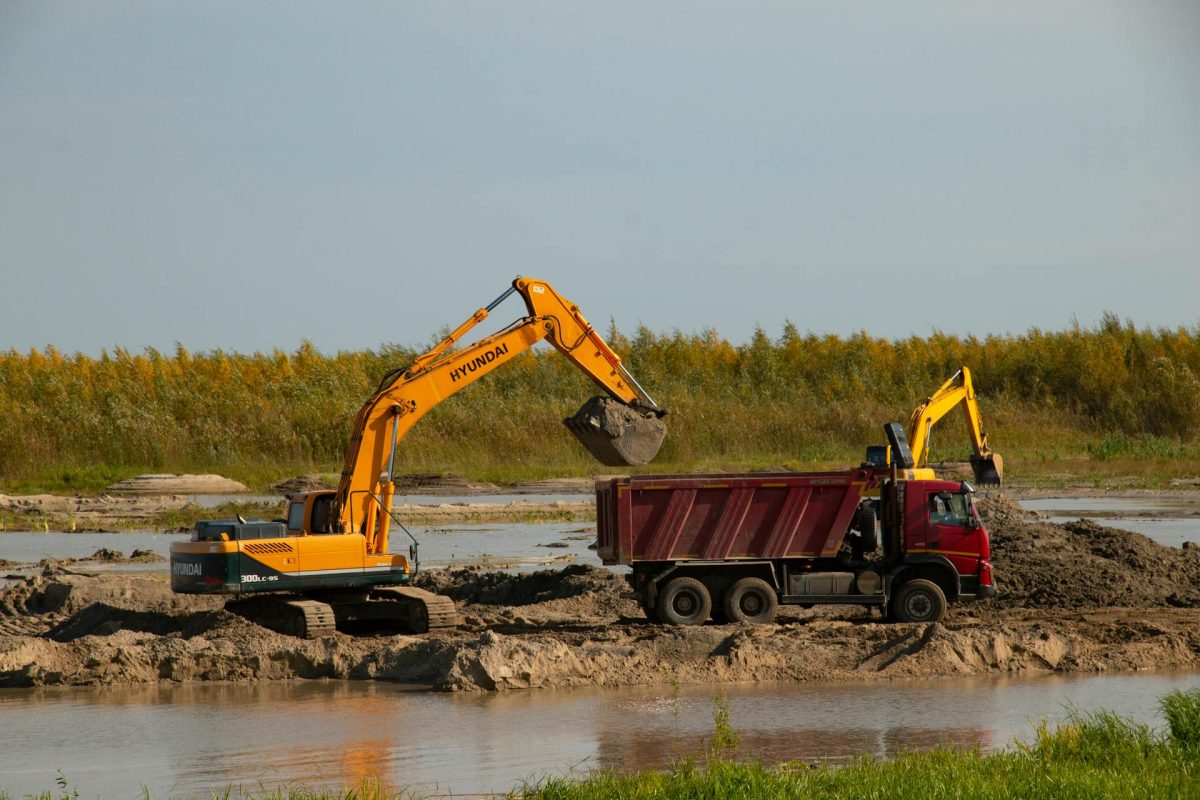In the construction industry, efficiency is everything. Whether you’re working on a residential renovation, commercial build-out, or a large-scale construction project, managing waste effectively can make or break your timeline. One of the most critical tools for keeping your job site running smoothly is a construction dumpster rental. Not only does it simplify debris removal, but it also helps maintain a safe and organized workspace.
In this post, we’ll explore how construction dumpster rentals can enhance your operations, what types of waste they can handle, and tips to streamline your project with the right dumpster.
The Role of Dumpsters in the Construction Industry
Construction projects generate a lot of waste—everything from scrap metal and concrete to wood, drywall, and other debris. Without an effective system for waste disposal, your project can quickly become overwhelmed with clutter, slowing down progress and potentially creating safety hazards.
Here’s how construction dumpster rentals can positively impact your job site:
- Improved Workflow: With a dumpster on-site, workers can efficiently dispose of waste as it’s generated, keeping the workspace clear of obstructions and debris that could interfere with daily tasks.
- Time and Labor Savings: Without a dedicated dumpster, you might end up spending additional labor hours hauling waste away from the job site. With a large-capacity dumpster, waste can be managed on-site, reducing the need for multiple trips to the landfill or recycling center.
- Safety Compliance: Keeping a clean and organized work environment is essential for meeting safety regulations. A cluttered site can lead to accidents and injuries, and failure to adhere to safety standards can result in costly fines. A dumpster helps you keep everything tidy and up to code.
- Environmental Responsibility: Many dumpster rental companies offer recycling and environmentally friendly disposal options. Construction projects often generate recyclable materials like metal, concrete, and wood. Properly sorting and disposing of these materials reduces landfill waste and promotes sustainable building practices.
Types of Construction Waste a Dumpster Can Handle
Construction dumpsters are built to handle a wide range of materials, making them invaluable for contractors and builders. Depending on the scope of your project, you might need to dispose of a variety of materials, including:
- Concrete, Brick, and Asphalt: Demolition or renovation projects often require the removal of concrete slabs, bricks, or asphalt. Dumpsters specifically designed for heavy debris can handle these materials without issue.
- Wood and Metal: Framing, siding, and structural elements produce significant amounts of wood waste, while electrical work or plumbing can result in scrap metal that needs to be disposed of properly.
- Drywall and Insulation: Renovations, remodels, and new builds typically involve tearing down or installing drywall and insulation. These materials, though bulky, can be easily handled by construction dumpsters.
- Roofing Materials: For roofing projects, shingles, tiles, and underlayment need to be discarded. Specialized roofing dumpsters are available to manage these materials, ensuring that you keep the site clear and safe.
- Landscaping Debris: For outdoor projects, you may need to dispose of dirt, gravel, tree branches, or other organic waste. Many construction dumpsters can accommodate this type of debris, especially when re-landscaping or leveling land.

Key Considerations for Choosing the Right Dumpster for Your Project
Not all construction projects are created equal, and neither are dumpsters. Selecting the right dumpster for your specific job will depend on several factors, including the type of project, the amount of waste, and the duration of your work.
Here are a few key considerations to keep in mind:
1. Project Size and Scope
A small renovation will have different waste management needs compared to a large-scale demolition. If you’re working on a home remodel, a mid-sized dumpster might be sufficient, while a commercial demolition will likely require the largest available options. Evaluate the size of the project and anticipate how much waste will be generated.
2. Type of Materials
The type of materials being discarded also matters. Heavy materials like concrete and brick can quickly add up in weight, meaning you may need a specialized dumpster for dense materials to avoid exceeding weight limits. Some companies offer dumpsters specifically designed for handling heavy debris, which helps prevent overage fees.
3. Job Site Accessibility
When renting a dumpster, you’ll need to consider the layout of the job site. Dumpsters come in different sizes, and you’ll need one that fits within the available space. Additionally, be mindful of access for delivery trucks and waste removal, ensuring the dumpster can be placed and picked up without causing disruption to the workflow.
4. Rental Duration
Construction projects can last anywhere from a few days to several months. Ensure that your rental company offers flexible terms, allowing you to keep the dumpster for the necessary duration without incurring additional fees. Some companies offer discounts for longer rental periods, so it’s worth exploring different options based on your project timeline.
Strategies to Maximize Efficiency with Dumpster Rentals
To get the most out of your construction dumpster rental, here are some tips to enhance efficiency and streamline waste management on your job site:
1. Separate Materials for Recycling
Maximize recycling opportunities by keeping recyclable materials (like metal, wood, or concrete) separate from general waste. Some dumpster rental companies offer specific bins for recycling, which can lower disposal costs and reduce environmental impact.
2. Plan for Staged Debris Removal
If you anticipate generating waste in phases (for example, demolition followed by construction), consider renting dumpsters in stages. Starting with a heavy-duty dumpster for demolition waste and transitioning to a general-use dumpster for construction debris will keep your site organized.
3. Avoid Overfilling the Dumpster
Overfilling a dumpster can lead to extra fees, and in some cases, dumpsters can’t be legally transported if they’re too full. To avoid this, make sure you accurately estimate the volume of debris your project will generate. When in doubt, opt for a larger dumpster to prevent overages.
4. Communicate with Your Team
Ensure that all workers are aware of the designated dumpster area and know what materials can be disposed of in each dumpster. Clear signage and communication can prevent improper disposal and help maintain an organized job site.
Finalizing Up Your Project with Confidence: Dumpsters as a Construction Game-Changer
In the fast-paced world of construction, managing waste effectively can be the difference between a job that runs like clockwork and one that’s constantly tripping over debris and delays. A construction dumpster isn’t just a nice-to-have—it’s a key component of a well-oiled operation. By selecting the right size, planning your waste strategy, and staying on top of debris removal, you’re setting your project up for success.
When you think about it, the humble dumpster is more than just a place to toss trash—it’s a tool that keeps your team safe, your site organized, and your timeline on track. So next time you’re gearing up for a big project, think ahead, plan smart, and make sure your dumpster rental is just as dialed in as every other part of your construction plan. Your future self—and your bottom line—will thank you.…



 It keeps waste contained, preventing its spread and the spilling of any liquids it may contain, giving an image of sanitation and hygiene in its work. The container or dump truck avoids handling waste since it is the final place where you will deposit it.
It keeps waste contained, preventing its spread and the spilling of any liquids it may contain, giving an image of sanitation and hygiene in its work. The container or dump truck avoids handling waste since it is the final place where you will deposit it. In addition, its size allows it to be deposited on public roads, as it occupies the space of a parked car. Filling it is easy, as its height allows an operator to throw the waste without climbing a ladder.
In addition, its size allows it to be deposited on public roads, as it occupies the space of a parked car. Filling it is easy, as its height allows an operator to throw the waste without climbing a ladder.